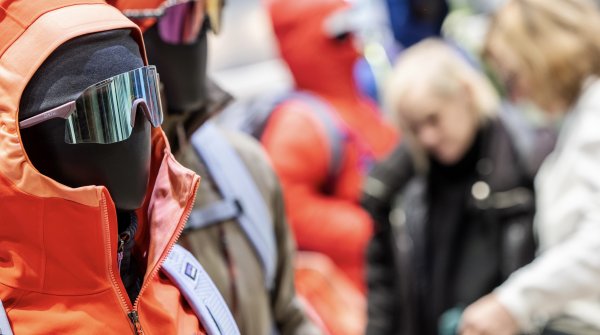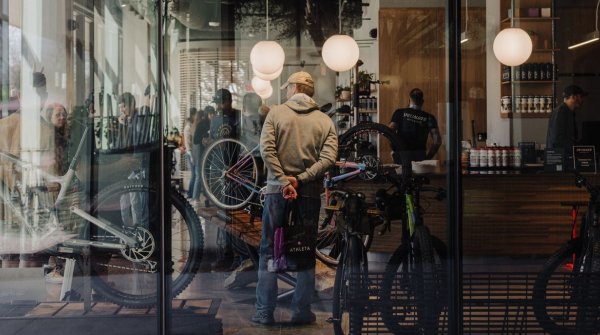A significant shift is underway as the sports health market gains traction worldwide, driven by growing awareness of the benefits of physical activity and mental well-being. Governments and organizations are beginning to recognize the role that physical activity plays in societal health, but the advocacy work is ongoing.
The interconnectedness between physical activity, overall health, and well-being is gradually forming an important part of sports retail as well. Retailers are focusing on creating a narrative that ties the use of sporting goods with the importance of exercising for good health. Brands like Nike are already making a foray into the sports health market through wearable technology and health monitoring apps.
Tobi Gröber highlights that to sustain retail in the sporting goods sector, companies must engage with consumers in promoting health through sport. This focus on activity is crucial, as lower participation rates could reduce market demand. Retailers are increasingly encouraged to connect the importance of exercise with the products they sell, inspiring a narrative that values health alongside innovation.
ISPO has been at the forefront of pushing initiatives that encourage outdoor activity and creating a global ecosystem of sports. As the organizer of popular sports trade shows Tobias puts it, “ISPO positions itself as a connector, facilitating valuable industry connections rather than merely selling exhibition space”. In line with industry shifts, ISPO has adjusted its event formats, separating Outdoor to focus more directly on brands and product, while the broader ISPO show now caters to the full sports market, including the rising sports health sector. This approach reflects ISPO’s role in supporting the industry’s transformation as companies adapt to rapid changes. Rather than focusing on transactions alone, ISPO prioritizes fostering connections across communities and sectors, helping brands and retailers address complexities, from AI to supply chain and sustainability challenges.
“It’s crucial for the industry to unite. As the CEO of Cambridge University suggested, cooperation and collaboration are essential, especially since sports and outdoor sectors face strong external competition for consumer spending.” ~Tobias Gröber
Besides physical events, ISPO is also exploring emerging markets and the digitalization of exhibitions. Markets like Saudi Arabia and India hold immense potential for the sporting sector. By tapping into these regions, ISPO aims to support the development of the sports market by introducing relevant topics and providing expert insights from its network. In regions like Saudi Arabia, where government support for sports initiatives is strong, ISPO's presence can help drive a shift toward more active lifestyles, aligning with its mission to make sports and health accessible globally and foster a culture of physical activity.
Owing to the metamorphosis in the sports retail industry several challenges as well as opportunities have arisen. Notable among these are:
Challenges
1. Sustainability – As climate change concerns grow, retailers are facing the pressure from both consumers and governments to adopt green practices. Government-led initiatives like the Green Deal and problem of Scope 3 emissions means that a transformation of the supply chain is imperative to address the concerns of ethical sourcing and labour. Major sports brands are already making the move towards a circular economy to reduce the impact of sporting goods on the planet.
2. Supply Chain Complexities – Fast changing trends, global networks, and need for sustainability require current supply chains to be agile and transparent. This necessitates a quick revaluation and redesign of the entire supply chain model to adapt to the market’s needs.
3. Global Inactivity – Tobi emphasizes that the sports industry has a societal role to play beyond product sales, particularly in addressing global inactivity. While companies focus on innovation, it is the messaging that also needs to keep up. According to Tobias, the scenario requires retailers to act as “wellness advisors” rather than mere sellers of goods. This will not only unlock broader growth but also emphasise the industry’s role in promoting physical activity.
Opportunities
1. Collaboration – “The main competition is outside of the sector,” Gröber notes. Building collaborations and cross-connections can have a two-fold benefit for the sporting goods sector. Interacting with other disciplines expedites problem-solving and reduces complexities. It also enables a smooth flow of communication within the organisation and enhances transparency. Cross-connections are also an excellent means of learning best practices from other sectors for further growth and improvement.
2. Emerging Markets – New markets such as Saudi Arabia, India, and especially China present tremendous growth opportunities. Tobi notes that ISPO’s two-decade presence in China has offered invaluable insights into the future of retail and technology. China is already pioneering new sales models and tech-driven solutions that could soon influence Western markets, making it a valuable blueprint for expansion and innovation.
3. Potential for Societal Change – Besides being a catalyst for change to improve physical and mental health, sports can also help correct other societal ills. The issues of inclusivity, gender equality etc., can also be addressed using sports as a medium. This type of impactful storytelling can integrate sports with global agendas that are socially beneficial and usher in positive change.
As the sports industry’s role expands, it will address not only physical health but also issues like sustainability, climate change, and social inclusion. Tobi envisions a future where AI and technology transform the industry by supporting companies in navigating complex challenges, from supply chains to consumer engagement. “The future is bright,” he affirms, “as long as we look at the big opportunities and tackle the challenges.” He believes that as sports and health increasingly converge, a global culture of wellness will emerge, promoting a holistic approach to well-being that transcends traditional retail boundaries.
 Sports BusinessSustainable ideas for store design
Sports BusinessSustainable ideas for store design Sports BusinessSports retail in transition: the future playbook for 2025
Sports BusinessSports retail in transition: the future playbook for 2025
- ISPO awards
- Mountain sports
- Bike
- Design
- Retail
- Fitness
- Health
- ISPO Job Market
- ISPO Munich
- ISPO Shanghai
- Running
- Brands
- Sustainability
- Olympia
- OutDoor
- Promotion
- Sports Business
- ISPO Textrends
- Triathlon
- Water sports
- Winter sports
- eSports
- SportsTech
- OutDoor by ISPO
- Heroes
- Transformation
- Sport Fashion
- Urban Culture
- Challenges of a CEO
- Trade fairs
- Sports
- Find the Balance
- Product reviews
- Newsletter Exclusive Area
- Magazine





